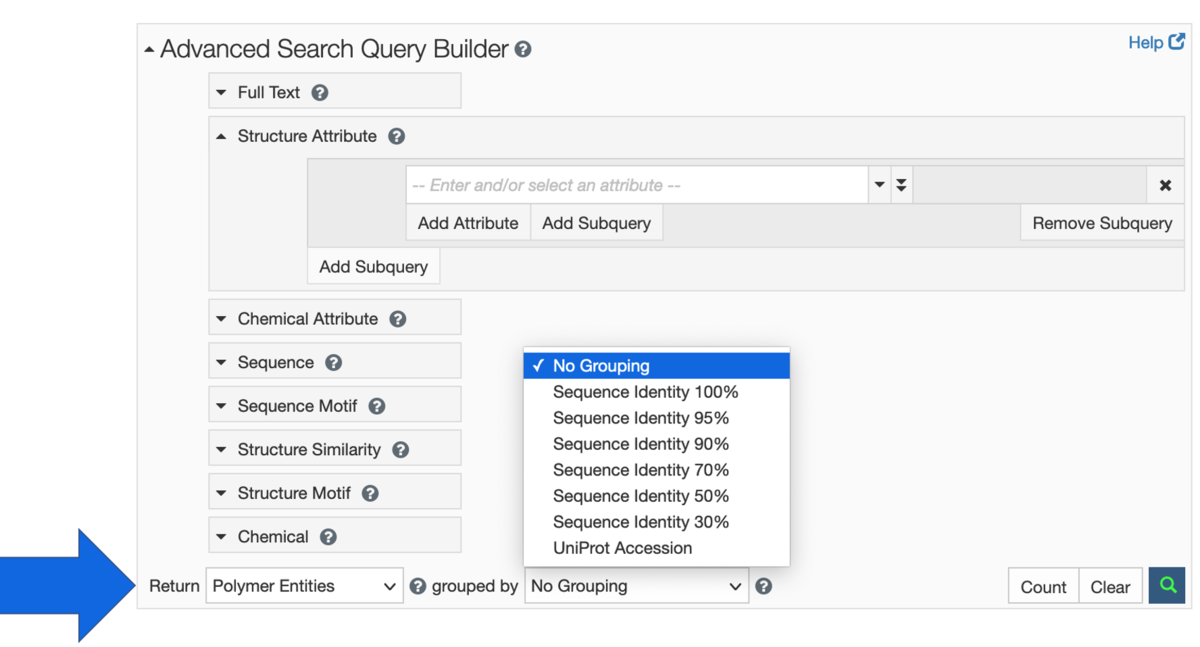New Features
Streamline Search Results
03/08
The new Group option simplifies PDB searching by generating a non-redundant search result set based on sequence identity, UniProt ID, and group depositions.
This feature is useful for result sets containing multiple structures representing highly similar proteins.
 Access this feature of the Advanced Search Query Builder. The arrow indicates where the user can toggle between options for grouping search results for Entities (sequence identity, UniProt ID) or for Structures (similar depositions grouped together).
Access this feature of the Advanced Search Query Builder. The arrow indicates where the user can toggle between options for grouping search results for Entities (sequence identity, UniProt ID) or for Structures (similar depositions grouped together).This feature can currently be used to group result types:
Structures: Some structures were deposited to the PDB together at the same time using the RCSB PDB Group Deposition server. These collections of structures (e.g., structures with same protein/s, but different bound ligands) are assigned a Group Deposition ID that identifies the collection. The Group function can be used to highlight a single representative structure from the set.
Polymer Entities: Representative entities can represent results with similar sequence identity (from 100% to 30%) or those entities with the same UniProt Accession ID.
Access detailed documentation about this new feature for grouping redundant search results.












